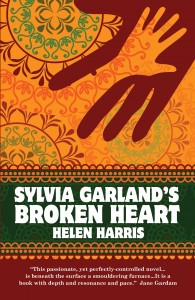Before she found the Central Saint Martins Birkbeck MBA, Jennifer Chen felt that a business degree would not be a good fit for her background as a creative. Now juggling the roles of design researcher, charity trustee, Royal Society of Arts fellow, start-up mentor and mum to twin toddlers, she’s embracing new challenges and learning to balance all areas of life more than ever.
My background is in design and advertising. As a creative, I found the work interesting, but from time to time felt a lack of control to make greater impact with my work. The agency setting I was in was rather fragmented and figuring out the why of the projects I was working on was usually someone else’s job. There were times when I would be given a task that didn’t feel quite right, but I did not have the capability or confidence to challenge it. My role was sometimes limited to form-giving, styling, making things look pretty – there is a lot of skill to that, of course, but I knew that I wanted to do more.
I began by searching for Masters programmes in innovation. I didn’t consider business programmes at first because I didn’t think they would be the right fit for me: of my friends with MBAs, as successful as they were, none of them had a job description that sounded like something I’d want to do.
I was delighted when I found out about the Central Saint Martins Birkbeck MBA. Working in the design community, I had always known about UAL, but Birkbeck’s strong research reputation gives the MBA more credibility in the business world.
From the very beginning, we were told that this was a safe space to share ideas, and that there were no stupid questions – I don’t think this is common practice in traditional MBA programmes. We learned from a team of excellent lecturers and industry leaders, but most importantly, from each other. As a more mature cohort with work and family commitments, we learned to plan for contingencies, to make sure colleagues could contribute to group projects regardless of their personal circumstances, and to be empathetic towards each other’s situations. We operated under the assumption that everybody wants to do their absolute best, but a bit of flexibility may be required here and there.
This was particularly true for me, since on the very first day of the programme I found out that I was pregnant with twins! It was almost surreal. My MBA cohort heard the news before some of my family. Birkbeck and UAL were very accommodating. To maximise my learning opportunities, Dr Pamela Yeow, the course leader, advised that I complete the first module, then helped me rejoin the programme a year later with the following cohort.
Even then, balancing work and family life was not easy, especially as the estimated ten hours of reading per week turned out to be quite an understatement! Towards the end of the programme, we had all nearly become experts in information extraction and priority management.
The course was a transformative experience for me. Through theory and practice, I was able to develop my skillset as a design leader, especially in the areas of collaborative leadership, entrepreneurship and operations management. Having access to industry-specific knowledge and concrete, actionable advice from the teaching staff has really helped me get closer to achieving my goals: affecting change to the world through design.
Chris Cornell, our lecturer on strategy, who has worked extensively with the charity sector, helped me work out a clear action plan. I am now a marketing trustee for the Heritage Crafts Association, refreshing the brand to create a contemporary, engaging and relatable identity in order to attract a wider audience. I also mentor startups, helping their world-changing ideas cultivate the power of storytelling and develop clear communication approaches.
The MBA makes you ask a lot of questions about the work that you do, the work that you want to do, and the work that you can learn to do, in order to implement change and improve the world around us, and in doing so, enrich ourselves.
Further Information:




